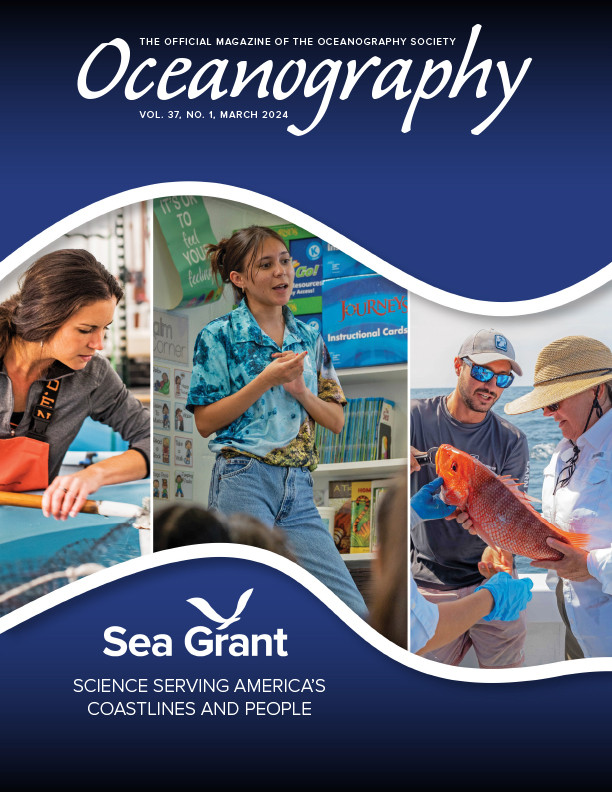Full Text
|
|
The National Sea Grant College Program (Sea Grant) delivers rigorous scientific research, extension expertise, and education to the coastal and Great Lakes regions of the United States, Puerto Rico, and Guam. Sea Grant’s mission is to enhance the practical use and conservation of coastal, marine, and Great Lakes resources in order to create a sustainable economy and environment. Operating through a network of 34 programs embedded in and tailored to their regions, Sea Grant supports and draws on the work of researchers at universities and colleges across the country to build a sound scientific foundation for the use and preservation of the nation’s coastal and Great Lakes resources. The Sea Grant model leverages a combination of research, extension, and education to allow for an integrated co-production approach to problem-solving and capturing opportunities that often include the development of new technologies and innovative approaches.
Sea Grant’s competitive, peer-reviewed scientific research answers pressing coastal community and ecosystem questions and generates solutions that address critical gaps in scientific knowledge facing our coastal and Great Lakes communities and the nation. Sea Grant’s education programs use this knowledge to inform and train citizens to help prepare the next generation of coastal and Great Lakes citizens, workers, and professionals. Additionally, with over 850 extension agents, Sea Grant works directly with communities to translate research into practice, empowering coastal stakeholders and training the next generation of leaders.
Sea Grant has a rich tradition of fostering robust partnerships across state, regional, and national levels to advance shared priorities related to coastal and marine issues. Sea Grant experts bridge national priorities with local citizens’ needs in ways that help guide state and national research agendas. This two-way exchange of services and information enables Sea Grant, NOAA, and our partners to meet demonstrated needs, support businesses, and help policymakers make balanced, well-informed, science-based decisions.
Since 1966, the impact of Sea Grant has been articulated in the outsized impacts of the program. In 2022, federal investment in Sea Grant of $89.5 million resulted in $802.3 million in economic benefit, creating or sustaining 1,601 businesses and 9,569 jobs. Over 5,650 resource managers have used ecosystem-based management approaches as a result of Sea Grant’s work, and 886 communities implemented new sustainable practices. The work we do has a lasting meaningful impact by preserving our natural coasts and ecosystems and helping society address the challenges the nation will face along our coasts.
As we look to the future, Sea Grant’s success and impact will continue to rely on the power of collaboration. This special issue creates a unique opportunity to showcase and celebrate the breadth of Sea Grant’s work. The articles in this special issue highlight projects from across the Sea Grant network and include contributions from 175 authors and over 50 external partners. We are grateful for the contributions to this special issue, which reflect the diverse expertise that strengthens our network.
Sincerely,
Dr. Jonathan Pennock
Director, National Sea Grant College Program


